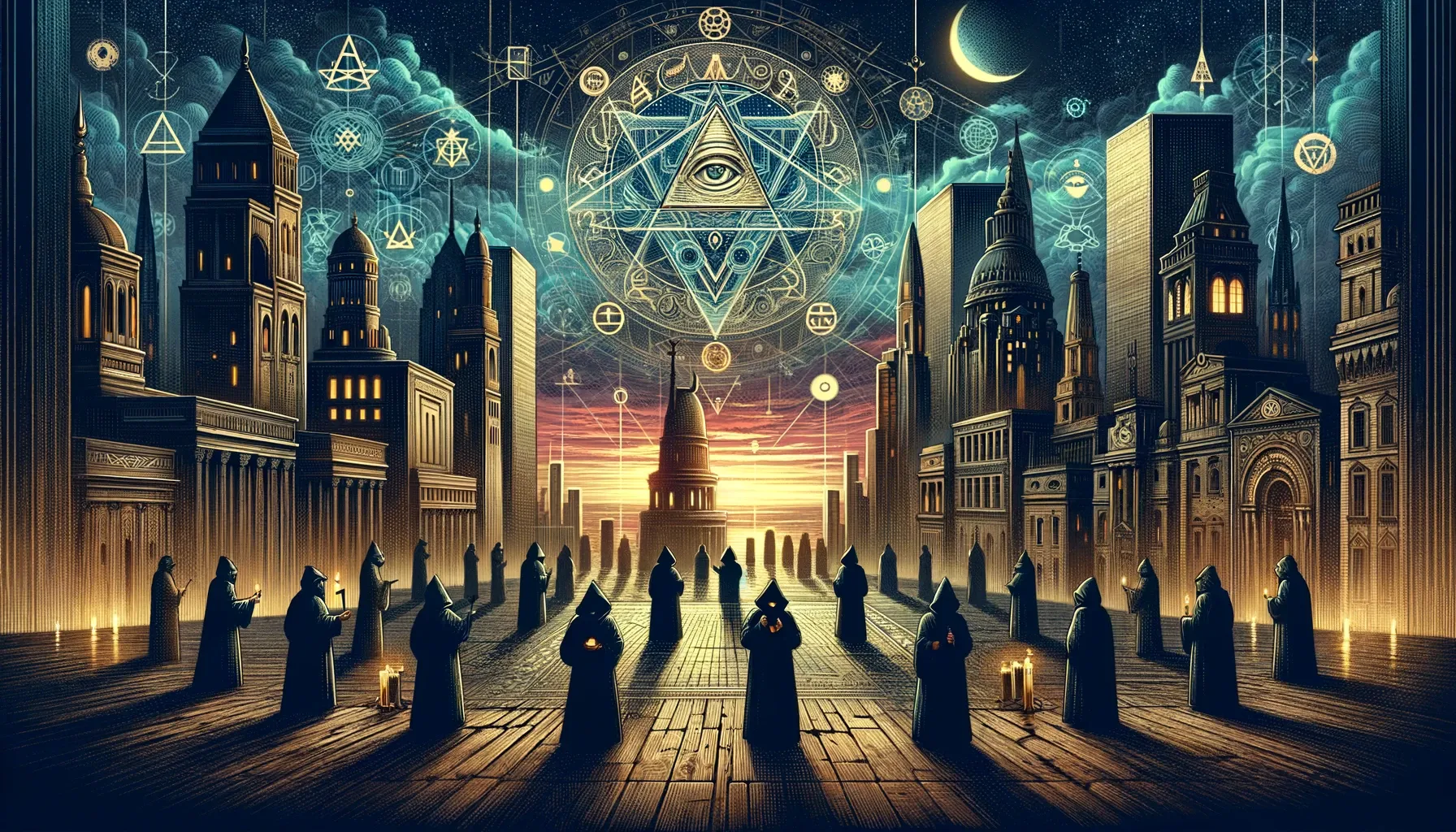Exploring the Shadows: A Glimpse into Esoteric Influences and Modern Dynamics
In the annals of history, the role of esoteric societies and secretive organizations has often been cloaked in mystery and fascination. These groups, wielding exclusive knowledge and engaging in enigmatic practices, have left indelible marks on the cultural, political, and financial landscapes of their times. Today, the influence of such
In the annals of history, the role of esoteric societies and secretive organizations has often been cloaked in mystery and fascination. These groups, wielding exclusive knowledge and engaging in enigmatic practices, have left indelible marks on the cultural, political, and financial landscapes of their times. Today, the influence of such organizations remains a subject of speculation and intrigue, prompting a journey into the shadows to understand their enduring impact on contemporary society. This exploration delves into the legacy of esoteric societies, their implications on modern geopolitics and economics, and the ethical and philosophical questions they raise, all while navigating through complex themes with a commitment to critical thinking and objective analysis.
The Legacy of Esoteric Societies
Esoteric societies, such as the Freemasons and the Thule Society, have long fascinated scholars and conspiracy theorists alike. These organizations, shrouded in layers of secrecy, claim to seek enlightenment and a profound understanding of the universe's mysteries. Their allure lies not just in their secretive nature but in their engagement with ancient wisdom and symbolic rituals, which purportedly offer keys to unlocking higher truths. Whether these societies have tangibly influenced the course of history is a matter of ongoing debate; however, their integration of philosophical and mystical elements into the social fabric undeniably sparks the collective imagination.
Modern Geopolitical and Financial Implications
The suggestion that esoteric beliefs underpin modern geopolitical and financial structures is both compelling and contentious. It posits that the philosophies and strategies of these age-old societies seep into the corridors of power, potentially guiding decisions on crucial matters such as population control, economic policies, and the governance of an increasingly interconnected world. This perspective raises critical questions about the nature of power and influence in a globalized society, suggesting a world where decisions affecting the many are influenced by the few, operating from the shadows. Such a scenario underscores the need for greater transparency and ethical scrutiny in the mechanisms of global governance.
Ethical and Philosophical Reflections
At its core, the discourse surrounding esoteric societies and their influence touches upon profound ethical and philosophical dilemmas. The quest for knowledge and power, especially when shrouded in secrecy, challenges foundational values of democracy, freedom, and equality. It raises pivotal questions about the right to knowledge and the balance between the pursuit of esoteric wisdom and the principles of an open and equitable society. These reflections invite a broader conversation about the values that should guide human progress and the nature of the societies we aspire to build.
Toward a Future of Enlightenment or Control?
The trajectory of human development, shaped by both visible and unseen forces, presents us with a critical choice: will we move towards a future driven by a genuine quest for enlightenment and collective betterment, or will we drift into an era marked by control and manipulation by a select elite? The resolution to this question hinges on fostering a culture that values transparency, encourages critical inquiry, and embraces collective responsibility. By engaging openly with the complexities and challenges posed by esoteric influences, society can navigate towards a future that honors the pursuit of knowledge while upholding the principles of justice and equity.
In conclusion, the exploration of esoteric societies and their modern-day implications invites us into a rich tapestry of history, mystery, and potential. By critically examining the shadows, we not only illuminate the past but also shine a light on the paths that lie ahead, guiding our steps towards a future that balances the quest for wisdom with the imperatives of an open, just, and enlightened society.





